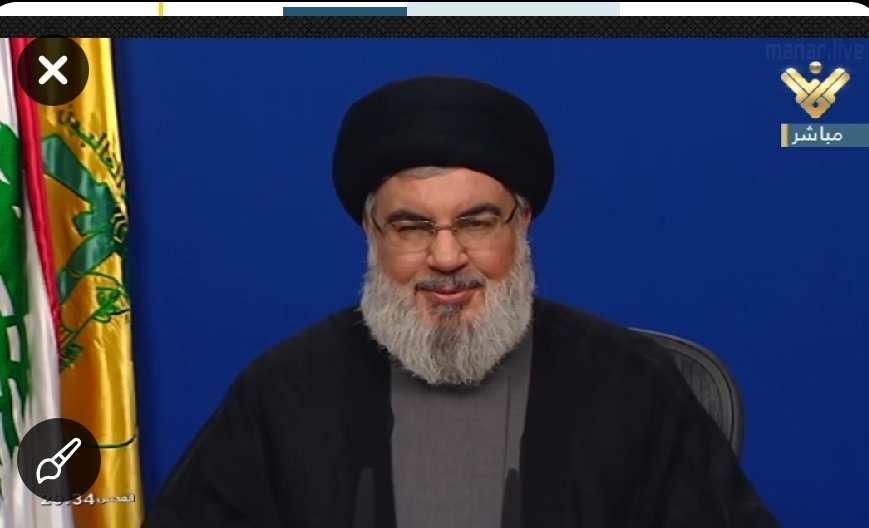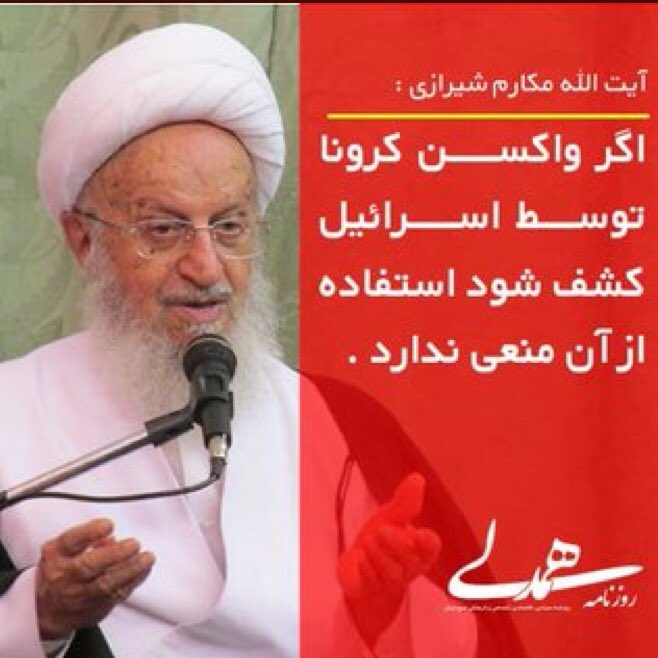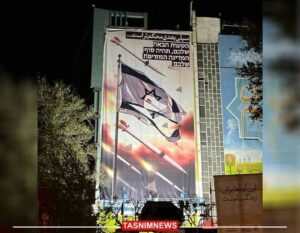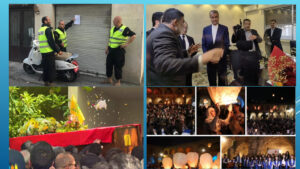The Coronavirus crisis
The Coronavirus crisis in Lebanon:
- On 10 March, the first death from the Coronavirus reported was of a woman that returned from Egypt.
- As of the publishing of this report, dozens of people are known to have been infected and have died from the virus. The Lebanese authorities have taken action to try to prevent the virus from spreading, such as closing markets, education institutions and disinfecting public places like the Parliament building.
هيدا مش تطهير.. التطهير الحقيقي هو انتخابات نيابية مبكرة pic.twitter.com/Hm6pbaT3oU
— Dima (@DimaSadek) March 10, 2020
- The virus first arrived in Lebanon by a carrier who came from the city of Qom in Iran. With the release of this news, Iran and Hezbollah began to be widely criticized on the local social media. The main narrative of this criticism is that Iran not only exports the Islamic Revolution but it also exports the Coronavirus to Lebanon. Hezbollah shares the blame for opposing the cessation of flights from Iran to Lebanon despite the severe outbreak of the virus in Iran (see details below).
- Passengers arriving on Iranian planes are exempt from isolation steps by Hezbollah at Rafik Al Hariri Airport. In the evening of 11 March, an Iranian plane landed at the airport with 150 Lebanese passengers who were exempted from any isolation protocols. According to information from the “al Janoubia” website, Hezbollah officials entered the airport, greeted the Iranian passengers transferring them out of the airport without going through border inspection and without any medical examination.
- On 10 March, Hezbollah announced that no mass prayers would be held until further notice.
- Following rumors that Nasrallah was infected with the Coronavirus, elements in Hezbollah vehemently denied the reports of his infection or of his isolation.
- On 13 March, Nasrallah addressed the rumors about him and the new situation in light of the Coronavirus:
- This is not a campaign against a specific country, but a world war in which different societies are fighting and it is everyone’s priority.
- In his speech, Nasrallah referred to the Coronavirus as a military enemy and a foreign invader, therefore, a war must be waged against it.
- The virus does not distinguish between religions and borders and therefore all must conduct themselves humanely…
- Speaking about the political situation in Lebanon, Nasrallah noted that this is not the time to settle political accounts or seek revenge. In his remarks, he stated that the language used in the country since the outbreak of the virus is not appropriate.
- Addressing the rumors about him and other Hezbollah officials as if they had been infected, Nasrallah noted that all these allegations are lies.
- At the beginning of the speech, Nasrallah seemed to be adopting an approach of global solidarity. However, towards the end, Nasrallah noted that President Trump and Secretary of Defense Pompeo are the world’s biggest liars with reference to the virus.
- He added that Iran does not need assistance from the US and only demanded that the sanctions on Iran be lifted and that Iran us not lying about the extent of the virus infection …
- Hezbollah as always takes care of its interests first. Despite his “national” narrated speech, there are reports that Hezbollah is taking over buildings across Beirut, turning them into central exclusive isolation centers for Hezbollah seniors and operatives.
- The leader of the “Lebanese forces” Christian party, Samir Geagea, expressed that in light of the spreading of the Coronavirus, there is a need to close all Palestinian and Syrian refugee camps in Lebanon. This statement made much turmoil, accusing Geagea of racism and inhumanity.

The Coronavirus crisis in Syria:
- Despite official government denials of the presence of the Coronavirus in Syria, the Syrian Human Rights Monitoring Center reports that dozens of Corona cases have been discovered in Damascus, Tartus, Latakia, and Homs, including virus-related deaths.
- There are several reports of the infection of Shiite militiamen located in the al Bukamal area. There are also reports of several deaths among civilians in that area.
- On 10 March, the Syrian Health Ministry announced that the only person suspected of contracting the virus is healthy.
- One cannot ignore that between Syria and Iran (a major center of the virus outbreak) there is a steady passage of people to no small extent. Therefore, it estimated that the virus came from Iran (like in Lebanon …).
- On 13 March, the Syrian government decided to ban all studies in major institutions and assemblies. It was decided to establish two isolation centers in each district of the country.
- There is concern about the spread of the Coronavirus to the transient camps where hundreds, and even thousands of displaced Syrian families from Idlib and Aleppo districts are located.
The Coronavirus crisis in Iran:
- The number of deaths in Iran accounted for the virus is estimated at hundreds of thousands. Many of the dead are buried hastily in mass graves, (Iran is now considered one of the three most severely affected countries along with China and Italy).
- Dozens of Iranian senior officials from the government, parliament, Revolutionary Guards and clerics were infected or died as a result of the virus.
- The most prominent among the infected are the Minister of Industry, dozens of MPs and senior officials of the Supreme Leader Khamenei’s bureau. The most senior affected is Ali Akbar Velayati head of Khamenei’s bureau and his most senior adviser.
- Notable among the dead are two Revolutionary Guard generals, Deputy Chief of the Judiciary, Commander of the Basij Brigades in Tehran, Former Deputy Foreign Minister who was one of the founders of the Hezbollah organization (see details in last week’s report), and a number of MPs.
- Mass prayers have been banned in mosques in general and on Fridays in particular, which is an exception in a country like the Republic of Iran.
- Educational institutions and universities have been shut down until 20 March.
- Steps have been taken in order to prevent the spread of the virus by reducing the number of people in the streets and shops.
- In a very unusual statement from 12 March, senior cleric Ayatollah Akram Shirazi noted that if Israel should develop a unique vaccine for the Coronavirus, the vaccine would be permitted for use.

- On 12 March, Supreme Leader Khamenei commanded Iranian Armed Forces commander Muhammad Hussein Bakry, to establish a control headquarters to fight the virus and stop its spreading.
- The commanding headquarters declared that over the next few days, all Iranian citizens would be reviewed through a diagnostics of the social networks and apps in order to form a clearer picture of the extent of the spreading of the virus.
The Lebanese arena – Other topics
Declaration of non-payment of bonds – Immediate and future implications:
- Credit rating company “Fitch” downgraded Lebanon’s foreign currency debt rating from CC to C (a country that is on the verge of bankruptcy but currently continues to meet its monetary obligations).
- Lebanon is on the verge of insolvency if its rating decline to D (credit rating D is given to a country that cannot meet its obligations, and will not meet its obligations in the future).
- Hezbollah opposes the IMF’s involvement in Lebanon’s financial affairs (see previous weekly review).
- Carnegie Middle East Center (research center on public policy in the Middle East and a researcher of political and economic developments in the Arab world, Turkey and Iran – founded in Beirut in November 2006) predicts that Hezbollah’s refusal to receive help from the IMF could lead to the collapse of the Lebanese government led by Hassan Diab, thus leading to the collapse of Lebanon itself.
- The Center states that without the assistance of the International Monetary Fund, Lebanon will not be able to receive the funds needed to save the economy.
The controversy between the US and France regarding the definition of the Lebanese government as a “Hezbollah government” and the economic context
- According to the Lebanese website “24”, there is a dispute between France and the US over the definition of the Lebanese government as a “Hezbollah government”.
- France opposes this definition. France is not interested in the collapse of the situation in Lebanon, as it has investment ambitions in the oil and gas industry. Such a definition could prevent aid to Lebanon, thereby worsening its financial situation and accelerating its collapse.
- In addition, Europeans see the definition of the Lebanese government as the “Hezbollah government”, as an American political definition that is far from the truth.
- Europeans will strive to improve the atmosphere between the US and the Lebanese government in order to give it a period of grace, a period to improve its economic condition, provided it makes serious reforms.
- The French do not want Lebanon to depart completely from the western influence circle, which could occur if it collapses totally.
- One should keep in mind that the Lebanese government is in fact a distinctly pro-Hezbollah government that is clearly politically controlled by Hezbollah. 19 out of 20 members of the Lebanese government identify themselves with the Lebanese political camp supporting Hezbollah.
The Syrian arena – Other topics:
US attack in the al Bukamal area:
- As a result of the firing of 10 rockets on 12 March towards the al-Taji military base, where both American and British soldiers are positioned, north of Baghdad, 2 American soldiers and 1 British soldier were killed.
- Following the incident, targets of Shiite militias in the al Bukamal region were attacked from the air on the Syrian-Iraq border.
- The main targets attacked were Imam Ali military base, and targets of the Fatimyun and al-Nujaba militias.
- Various reports indicate that 26 militiamen were killed in the attacks.
- The US response also continued within Iraq. On 13 March, five targets were attacked throughout Iraq, which included ammunition warehouses belonging to the pro-Iranian Shiite militia (“Iraqi Hezbollah regiments”).
The fragile ceasefire in Idlib Province:
- Many violations occurred even after reaching the ceasefire agreement between Turkey and Russia. Shiite Iranian-supported militias carried out most of the violations.
- The militias recently sent new troops into the area of Sarakíb city southeast of Idlib city.
- The NORCE Research Center noted that the new forces arriving at Sarakíb belong to the Fatimyun and Zaynabiyoun militias.






